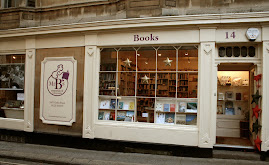


A small diversion. I have now read three of the six Booker Shortlisted titles and I believe that even on this sample, the judges have made a rod for their own backs. All utterly different, all utterly brilliant in their own way. It's like comparing apples with Azerbaijan. How on earth are they going to decide? Here's my twopenn'orth to muddy the waters a bit more...
1) The Sense of an Ending by Julian Barnes.
Classy, effortless prose that is at once intelligent, wry, honest and crafted. The reader is placed in the hands of an unreliable narrator, one late middle-aged Tony Webster. But then Tony goes and tells us outright that he is an unreliable narrator precisely because he can't trust his own memories. And yet the reader can still be hoodwinked and surprised, such is his rationale and charisma. Tony tries to reconstruct the his childhood friendships with a group of boys who at 18 eventually go their own separate ways into University. The brightest and most inscrutable, Adrian, ends up at Cambridge. His brilliance is cut short, however, when he takes his own life. And it is this unexplained suicide that bubbles back to the surface of Tony's present. In witnessing his attempt to piece together evidence from his own life, we are invited to examine our own memories and whether history can ever be pinned down accurately. Julian Barnes is a master at creating realistic, complex human relationships and this novel is no exception. There are ideas and ways of thinking in here that stay with you for a long time.
2) Half Blood Blues by Esi Edugyan
I don't usually get on that well with books written entirely in dialect form (e.g. Trainspotting, Finnegan's Wake) but Sid's language is as lyrical, evocative and entertaining as a jazz solo. You very quickly get caught up in the rhythm and before long, you is thinking like a real Jack. The story is split between the past of pre-war Berlin and Paris, and a 'post-Berlin Wall' present. The sections describing how Jazz was perceived in Europe in the build-up to the second world war is fascinating. The history of the young, German, half-black trumpet genius Hieronymous Falk is a real eye-opener and the comaraderie of the band that both he and Sid perform with is by turns touching, treacherous, witty and wise. The edginess of the buildup to war adds weight to the consequences of each character's actions. I think what struck me most about this book was the pace. It is so perfectly balanced, each story strand works to build tension, move the plot along and reveal information. Without wishing to labour the musical analogy too much, it's all very harmonious. And just like Jazz -happy to be unpredictable and break a few rules.
3) The Sisters Brothers by Patrick de Witt
A bombastic, hugely entertaining and darkly comic road trip through Californian gold rush country in the company of the deadly Sisters Brothers. Eli Sisters tells it like it is, pulls no punches and occasionally offers his own remorseful take on life philosophy. The brothers encounter a raft of tragi-comic and occasionally reprehensible characters as they track down a lone prospector by the name of Herman Kermit Warm. Even Eli's hapless horse Tub has bucket loads of character thrust upon him. De Witt plays fast and loose with Western conventions and yet this is so much more than a pastiche. The characters are fantastic, the dialogue spot on, the situations exciting. I read it in one day, because I couldn't put it down. It's just that sort of crazy, inventive tale. Also, I have to give a quick thumbs up for the bold look of the trade paperback: the kooky design features genuinely enhanced my reading experience.
So, there you have it: clever, multi-layered or enthralling...I think I'll leave it to the judges but I have really enjoyed the diversity of these three and whilst I've only half the field to comment on, either one would be a worthy winner.
(Lucinda)


No comments:
Post a Comment